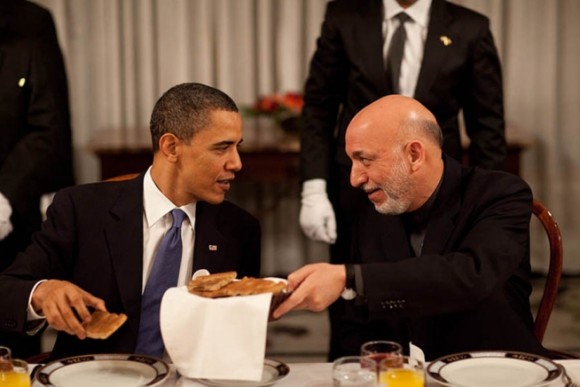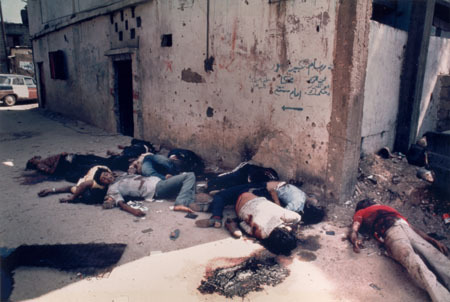
The bottom line when it comes to Afghanistan is that the U.S. has failed in virtually every one of its objectives. This year, 2014, is the year the Obama administration will describe as the year America’s longest war ended, even as the administration scrambles to reach an agreement with Kabul on keeping thousands of U.S. troops and Special Operations Forces there for another decade.
It’s important for Washington to frame the continued U.S. occupation of Afghanistan as the end of the war, because the alternative is to admit that America lost this war. The corrupt Kabul government cannot function or sustain itself without foreign assistance. The U.S. troops that Obama wants to keep in Afghanistan are to be tasked with training the Afghan military, an objective that has failed up to now. And the Taliban insurgency is alive and well, with many experts predicting a civil war or a break-up of the country into Taliban, tribal, and Kabul-controlled fiefdoms.
The weakness of the Kabul government and the remaining Taliban presence, however, is not an argument for continuing the war in earnest. Afghanistan’s instability may contribute to regional insecurity, but is not a direct threat to Americans. But beyond that, the U.S. could easily mitigate the problem with a change in its diplomatic posture, as opposed to military means (which have proven ineffective after 12 years at war).
First, the elephant in the room is Pakistan. Bruce Reidel, writing at The Daily Beast, argues that al-Qaeda and associated forces could make a comeback in Afghanistan after the U.S. draws down and the reason for this is Pakistan.
“Pakistan will continue to be the principal supporter and patron of the Afghan Taliban, the enemy that we have been fighting for so long,” Reidel writes. “Pakistan provides the Taliban with safe haven and sanctuary to train and recruit its fighters and protects its leaders, including Mullah Omar. The Pakistani intelligence service, ISI, helps train and fund the Taliban.”
This should ring some alarm bells. Throughout the entire U.S. war in Afghanistan, the Pakistani government has been supporting the insurgents who are fighting U.S. forces. This is more surprising when one realizes that, since 2009, the U.S. has given Pakistan about $9.4 billion in aid, with another $1.2 billion planned for 2014. Cutting off that aid might help in, you know, not directly contributing to the very insurgency we’re supposed to have crushed.
The other shift in diplomatic posture has to do with Afghanistan’s other neighbor, Iran. People forget that the U.S. cooperated with Iran in the aftermath of 9/11 to oust our mutual enemy, the Taliban, from power in Afghanistan. Such cooperation could again be realized if Washington’s mindless obsession with Iran being a regional bogeyman is put aside in favor of true detente. According to Martha Brill Olcott at the Carnegie Endowment for International Peace, “an improved U.S.-Iranian relationship would yield many other dividends to U.S. foreign policy goals, not the least of which is that it would make the regional solution to Afghanistan’s economic recovery that Washington yearns for a much more realizable goal.”
From a purely realpolitik perspetive, there have been clear overlaps in U.S.-Iranian interests vis-a-vis Afghanistan that have been completely ignored in favor of a U.S. policy that categorizes Iran as an evil-doer out to destroy Israel and America. Meanwhile, tens of billions of U.S. dollars continued to flow to Pakistan, whose interests have been diametrically opposed to Washington’s vis-a-vis the jihadist militants.
Sigh. Lesson learned: If Washington can choose between, on the one hand, shifts diplomacy that can make its goals easier to attain, and on the other hand, endless war with no chance of success…it chooses the latter. All signs are that this will continue to be the case. Instead of cutting aid to the Taliban-supporting Pakistanis, instead of letting Iran take the lead in maintaining a Kabul government opposed to jihadists, Washington looks like it will to continue to support Pakistan, continue isolate Iran, and continue to fight an unwinnable nation-building war in Afghanistan.






 Sharon was removed from office after an Israeli commission concluded that Israeli leaders were “indirectly responsible” for the massacres and that Sharon bore “personal responsibility” for failing to prevent them. But, as
Sharon was removed from office after an Israeli commission concluded that Israeli leaders were “indirectly responsible” for the massacres and that Sharon bore “personal responsibility” for failing to prevent them. But, as